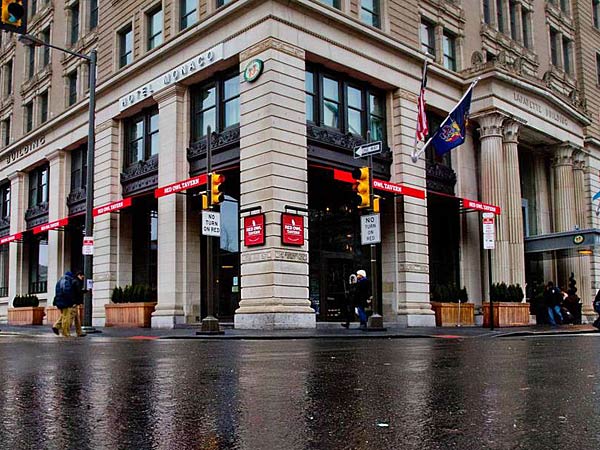Philadelphia has
cut a lot of hotels tax breaks since the Convention Center went up 20 years
ago.
Now some of the
hotel owners are yelling, That's enough!
Seven high-end
hotel operators signed a letter last week to protest planned tax breaks for the
700-room W and Element hotels project proposed for 1441 Chestnut St.
Mayor Nutter and the city tourism establishment want to
let Starwood Hotels and developer Brook Lenfest divert millions in taxes
the project would otherwise owe to repay their financiers, among other breaks.
"After
adjusting for reductions at other hotel properties, the proposed project will
not generate nearly the amount of tax increment or jobs that the developers
claim, and the city may very well end up giving away more money in subsidies
than it receives in additional taxes," the rival hoteliers warned.
"I'm sorry
these hotel owners are sort of jealous," Lenfest (whose father, H.F. "Gerry" Lenfest, is
part-owner of The Inquirer) told me. "The city wants this. The city spent
$800 million building a convention center that can't have two conventions at
the same time because of the lack of hotel rooms. We think occupancy will be
higher for Philadelphia hotels when these are built."
Ben Rowe, chief financial officer at Kimpton Hotels, which owns
Philadelphia's Palomar and Monaco hotels, warns that
"occupancy is dropping" for Center City hotels, with a lack of
Convention Center bookings through the next four years.
If they build W
and Element, will others close? "I don't want to threaten that," Rowe
told me. "But overbuilding depresses performance to a level where it can
lead to failure to reinvest in assets - and ultimately the quality of the
hotels decline."
Too familiar, says
John Grady, boss at the Philadelphia Industrial Development Corp.,
which backs the W and Element plan. "Every time we make an investment in a
hotel project, the existing hotel owners say it's going to be the end of the
world."
By Grady's count,
while Center City hotel rooms almost doubled, to 11,000, between 1992
and 2012, room stays more than doubled, to nearly three million a year.
Occupancy rose, from 65 percent in 1993 and 66 percent in 2003, to 73 percent
in 2013.
They built more
rooms, and more people came. (Though never nearly as many as city consultants
projected, Heywood Sanders, a
University of Texas at San Antonio scholar, reminded me.)
Philadelphia gave
tax abatements and aid worth $277 million to a dozen hotel projects in
1998-2013, by Grady's count - 39 percent of the hotels' total $717 million
cost. The W and Element project would confer $75 million in breaks, 27 percent
of cost.
"When we grow
rooms, the market responds," Grady concluded. "Will the next two or
three years be slow? Yes. But these hotels won't open for three years! They'll
be under construction during the slow period. The data suggest the market will
respond."
Source: Philly.com

No comments:
Post a Comment